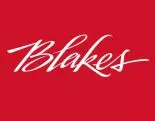In three decisions released at the end of April 2017, Superior Court of Québec, Ontario Divisional Court and Federal Court judges addressed a number of important issues for businesses, including unreasonable delay in prosecution, certification and disclosure.
SUPERIOR COURT OF QUÉBEC RULES ON LENGTHY DELAY
On April 21, 2017, the Superior Court of Québec (Court) ruled that lengthy delay between the laying of bid-rigging charges and the anticipated end of trial does not violate the Canadian Charter of Rights and Freedoms (Charter).
In Les Industries Garanties limitée c. R., the Court allowed the prosecution of a company and its employee to proceed despite a 40-month delay between the laying of charges and the trial. The Court determined that the delay was not unreasonably long in view of the complexity of the case (arising from both the large volume of disclosure and the specific legal and evidentiary issues raised) notwithstanding the presumption of unreasonableness established by the Supreme Court of Canada in R. v. Jordan.
The Court's finding that the bid-rigging prosecution was more complex than a typical murder trial suggests that defendants in criminal prosecutions under the Competition Act may face difficulty obtaining Charter relief for lengthy pre-trial delays.
DIVISIONAL COURT OF ONTARIO NARROWS SCOPE OF CLASS ACTION CLAIMANTS
On April 26, 2017, the Ontario Divisional Court upheld in part a decision of the Ontario Superior Court of Justice certifying a class action relating to an alleged global price-fixing conspiracy for the supply of lithium-ion batteries (Shah v. LG Chem, Ltd.). The Divisional Court's decision allowed for the certification of an unlawful means conspiracy claim, but refused to certify the umbrella purchaser claim.
An umbrella purchaser claim would attach liability to the defendants for the higher prices paid by class members to non-defendants which, in theory, were able to raise their prices to follow price increases coordinated by the defendants in the conspiracy. The Divisional Court concluded that certification of an umbrella purchaser claim would expose the defendants to indeterminate liability — a significant consideration in claims of economic loss. This issue remains unsettled, however, as the B.C. Supreme Court reached the opposite conclusion in a related case.
COMMISSIONER ABLE TO LIMIT DISCLOSURE BASED ON PUBLIC INTEREST PRIVILEGE
On April 24, 2017, the Competition Tribunal reaffirmed the Commissioner's ability to claim public interest privilege on a class basis over documents and information received from complainants and third-parties, even where those parties are known (The Commissioner of Competition v. Vancouver Airport Authority). As a result, the Commissioner continues not to be required to disclose documents over which it claims public interest privilege unless he intends to submit those documents into evidence. In an extensive review of the case law, the Competition Tribunal concluded that a class-based public interest privilege facilitates the Commissioner's ability to enforce the Competition Act.
Cartel enforcement update: On April 25, 2017, a Japanese auto parts manufacturer pled guilty to bid-rigging and agreed to pay a C$13.4-million fine, the second largest bid-rigging fine secured to date in Canada. The Competition Bureau's pursuit of alleged international conspiracies involving auto parts continues and has resulted in C$84-million in fines to date.
The content of this article is intended to provide a general guide to the subject matter. Specialist advice should be sought about your specific circumstances.

